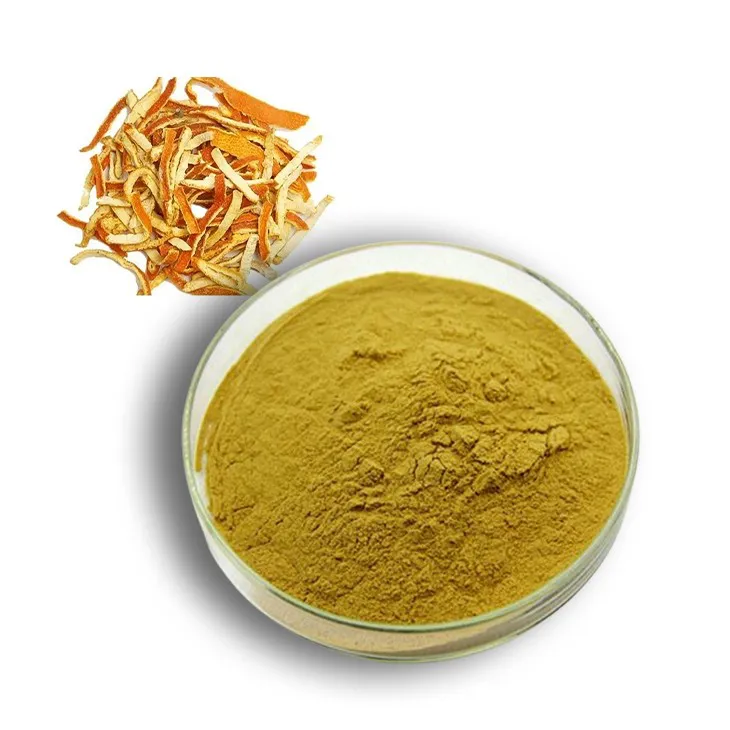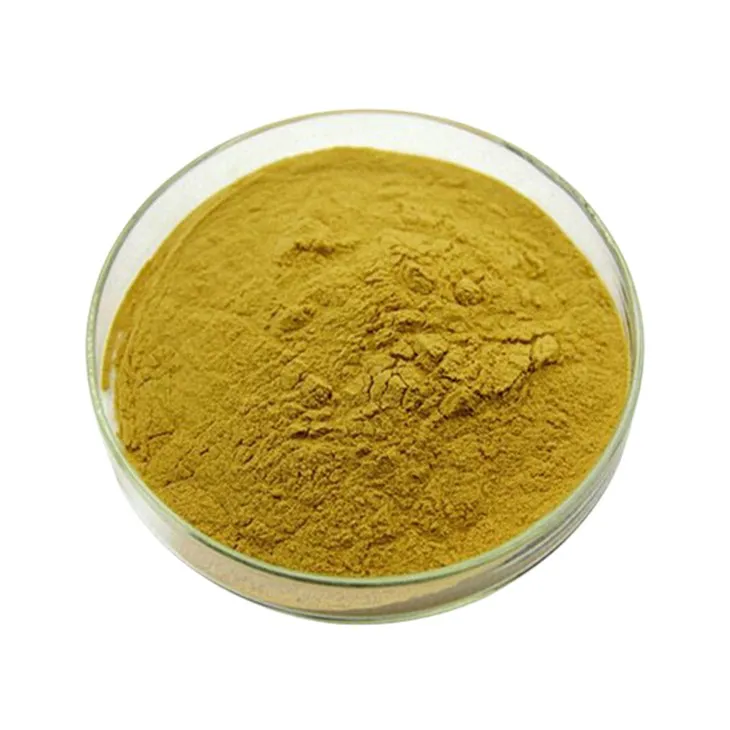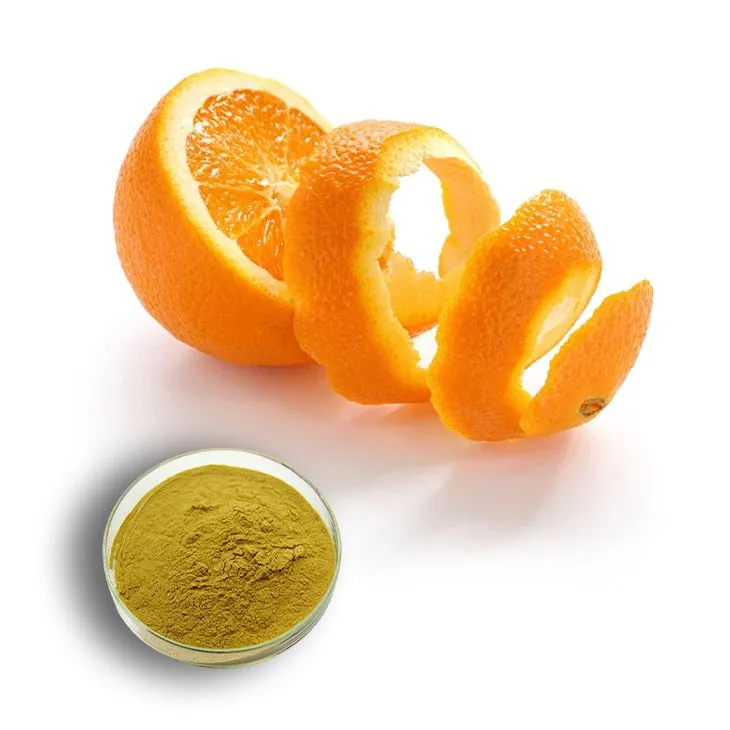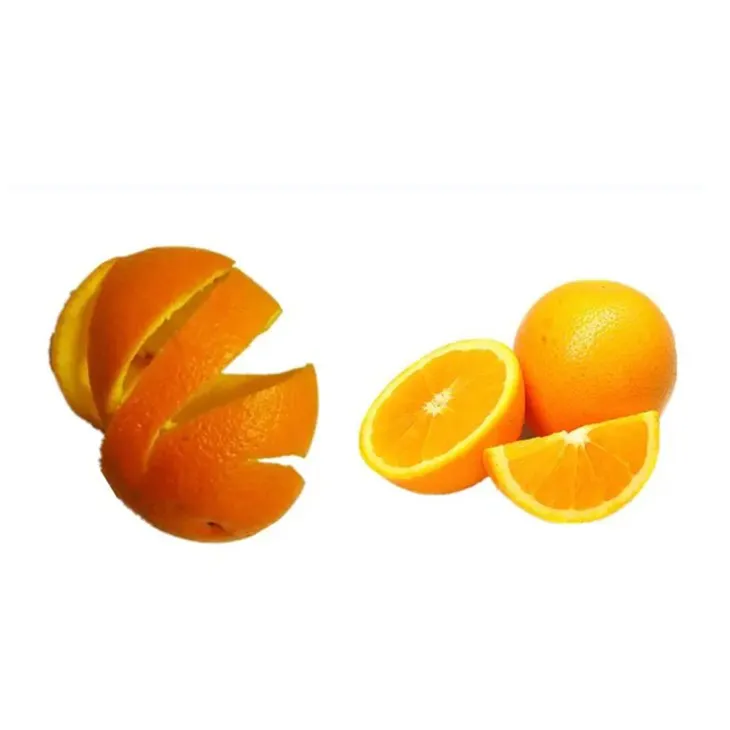- 0086-571-85302990
- sales@greenskybio.com
Expert Tips for Effective Wholesale Hesperidin Procurement.
2024-12-09

1. Introduction
Hesperidin, a flavanone glycoside found abundantly in citrus fruits, has gained significant popularity in various industries such as pharmaceuticals, nutraceuticals, and cosmetics. For businesses involved in the wholesale procurement of Hesperidin, it is crucial to understand the key factors that can ensure a successful and cost - effective acquisition process. This article will provide in - depth expert tips on different aspects of wholesale Hesperidin procurement, including quality assessment, sourcing reliable suppliers, and achieving cost - effectiveness.

2. Understanding Hesperidin
Hesperidin is a bioactive compound with numerous health - promoting properties. It has antioxidant, anti - inflammatory, and vascular - protective effects. In the pharmaceutical industry, it is being studied for its potential role in treating cardiovascular diseases, diabetes, and certain types of cancer. In nutraceuticals, it is used as a dietary supplement, and in cosmetics, it is added to products for its skin - protecting and anti - aging properties.
Understanding the properties and applications of hesperidin is the first step in effective procurement. This knowledge helps in determining the appropriate quality standards and quantity requirements for wholesale purchases.

3. Quality Assessment of Hesperidin
3.1 Purity
One of the most important aspects of hesperidin quality assessment is purity. High - purity hesperidin is essential for ensuring its effectiveness in various applications. When procuring wholesale, it is necessary to ask suppliers for detailed information on the purity of their hesperidin products. Suppliers should be able to provide certificates of analysis that clearly state the percentage purity of hesperidin in their offerings.
A common method for determining purity is through high - performance liquid chromatography (HPLC). This analytical technique can accurately measure the amount of hesperidin in a sample, separating it from other compounds. Wholesale buyers should ensure that the suppliers they choose use reliable and accurate methods for purity determination.
3.2 Source and Extraction Method
The source of hesperidin and the extraction method used can significantly impact its quality. Hesperidin is typically extracted from citrus fruits, such as oranges and lemons. However, the quality of the raw materials and the extraction process can vary.
For example, hesperidin extracted from organically grown citrus fruits may be of higher quality as it is less likely to contain pesticides or other contaminants. Additionally, modern extraction methods, such as supercritical fluid extraction, can result in a more pure and bioactive hesperidin product compared to traditional extraction methods.
When evaluating suppliers, it is important to inquire about the source of their hesperidin and the extraction method used. This information can help in assessing the overall quality of the product.
3.3 Contaminant Testing
Contaminant testing is another crucial part of hesperidin quality assessment. Potential contaminants can include heavy metals, pesticides, and microbial contaminants.
- Heavy metals such as lead, mercury, and cadmium can be toxic and should be present in extremely low levels, if at all, in hesperidin products. Suppliers should be able to provide test results showing that their products are free from excessive heavy metal contamination.
- Pesticide residues can also be a concern, especially if the hesperidin is sourced from non - organic citrus fruits. Buyers should ensure that suppliers conduct regular pesticide residue testing and that the levels are within acceptable limits.
- Microbial contaminants, such as bacteria and fungi, can affect the stability and safety of hesperidin products. Suppliers should have proper quality control measures in place to prevent microbial contamination and should be able to provide evidence of microbiological testing.

4. Sourcing Reliable Suppliers
4.1 Reputation and Experience
When it comes to wholesale hesperidin procurement, the reputation and experience of the supplier are key factors. A supplier with a long - standing reputation in the industry is more likely to provide high - quality products and reliable service.
- Look for suppliers who have been in business for several years and have a positive track record. You can check online reviews, industry forums, and ask for references from other businesses in the same field.
- Experienced suppliers are more likely to have well - established quality control systems in place, which can ensure the consistency and quality of their hesperidin products.
4.2 Certifications and Compliance
Suppliers should hold relevant certifications to demonstrate their compliance with industry standards and regulations.
- For example, in the food and nutraceutical industries, suppliers may need to have certifications such as Good Manufacturing Practice (GMP) certification. This ensures that their manufacturing processes are of high quality and meet regulatory requirements.
- ISO certifications, such as ISO 9001 for quality management systems, can also be an indication of a supplier's commitment to quality. Wholesale buyers should look for suppliers who are certified and can provide evidence of their compliance.
4.3 Production Capacity and Scalability
The production capacity of a supplier is an important consideration, especially for wholesale buyers who may require large quantities of hesperidin.
- Suppliers should be able to meet the buyer's current and future demand. A supplier with a large production capacity can ensure a continuous supply of hesperidin, even during peak demand periods.
- Scalability is also crucial. A good supplier should be able to increase their production volume if the buyer's demand grows over time. This can help in establishing a long - term business relationship.
4.4 Customer Service
Good customer service is essential when dealing with suppliers. A responsive and helpful supplier can make the procurement process much smoother.
- Look for suppliers who are easy to communicate with, respond promptly to inquiries, and are willing to provide technical support and advice on hesperidin products.
- Suppliers who offer after - sales service, such as handling product returns or complaints efficiently, can also be a great advantage.

5. Cost - Effectiveness in Hesperidin Procurement
5.1 Price Comparison
Comparing prices from different suppliers is a basic step in achieving cost - effectiveness. However, it is important to note that the cheapest option may not always be the best.
- When comparing prices, also consider the quality of the hesperidin products. A slightly higher - priced product may be a better value if it has a higher purity or better quality control.
- Look for suppliers who offer volume discounts. For wholesale procurement, volume discounts can significantly reduce the overall cost per unit.
5.2 Logistics and Shipping Costs
Logistics and shipping costs can add a significant amount to the total cost of hesperidin procurement.
- Consider the location of the supplier. A supplier closer to your business location may have lower shipping costs. Additionally, suppliers who have established relationships with reliable shipping partners may be able to offer more cost - effective shipping options.
- Look for suppliers who can offer flexible shipping arrangements, such as combined shipments or just - in - time delivery. These options can help in reducing inventory holding costs and overall logistics expenses.
5.3 Long - Term Contracts
Entering into long - term contracts with suppliers can be a cost - effective strategy.
- Long - term contracts can provide price stability, protecting the buyer from price fluctuations in the hesperidin market. Suppliers may also be more willing to offer favorable terms, such as lower prices or better service, in exchange for a long - term commitment.
- However, before entering into a long - term contract, it is important to thoroughly evaluate the supplier's reliability and performance to avoid potential risks.
6. Conclusion
Effective wholesale hesperidin procurement requires a comprehensive understanding of various factors. By carefully assessing the quality of hesperidin, sourcing reliable suppliers, and focusing on cost - effectiveness, businesses can ensure a successful procurement process. These expert tips can serve as a guide for those involved in the wholesale purchase of hesperidin, helping them to make informed decisions and achieve their business goals.
FAQ:
What are the key factors in quality assessment of wholesale hesperidin?
When assessing the quality of wholesale hesperidin, several key factors should be considered. Purity is crucial. High - quality hesperidin should have a high level of purity, with minimal impurities. The source of the hesperidin also matters. If it is derived from natural sources like citrus fruits, it may be more desirable. Analytical methods such as HPLC (High - Performance Liquid Chromatography) can be used to determine the chemical composition and purity accurately. Additionally, the physical properties like color, solubility, and particle size can give an indication of the quality. For example, a consistent color and good solubility may suggest a well - processed and pure product.
How can one find reliable suppliers for wholesale hesperidin?
To find reliable suppliers of wholesale hesperidin, start by conducting thorough market research. Look for suppliers with a good reputation in the industry. Check online reviews and testimonials from other buyers. Industry trade shows and exhibitions are great places to meet potential suppliers face - to - face and assess their credibility. Verify their manufacturing processes and quality control measures. A reliable supplier should be able to provide detailed information about their sourcing, production, and quality assurance procedures. Also, consider suppliers who are compliant with relevant industry standards and regulations, such as GMP (Good Manufacturing Practice).
What are the strategies to ensure cost - effectiveness in wholesale hesperidin procurement?
For cost - effective wholesale hesperidin procurement, volume negotiation is important. Buying in larger quantities often leads to lower unit costs. However, ensure that the quality is not compromised in the pursuit of lower prices. Compare prices from different suppliers, but also take into account the overall value, including quality, delivery time, and customer service. Look for suppliers who offer discounts or incentives for long - term contracts or bulk purchases. Another strategy is to optimize the supply chain. Reducing transportation costs and minimizing inventory holding costs can contribute to cost - effectiveness. Additionally, keep an eye on market trends and price fluctuations to time your purchases advantageously.
How important is the origin of hesperidin in wholesale procurement?
The origin of hesperidin is quite important in wholesale procurement. Different origins may imply different qualities. For example, hesperidin sourced from certain regions may be of higher quality due to better soil conditions, climate, or cultivation methods in those areas. Additionally, the origin can affect the price. If it comes from a region known for high - quality production, it may be more expensive but could also be more reliable in terms of quality. The origin may also be relevant in terms of regulatory compliance. Some regions may have stricter regulations regarding the production and extraction of hesperidin, which can ensure a safer and higher - quality product.
What regulatory requirements should be considered in wholesale hesperidin procurement?
When procuring wholesale hesperidin, several regulatory requirements need to be considered. In many countries, compliance with food and drug regulations is essential if hesperidin is intended for use in food or pharmaceutical products. This may include requirements for purity, labeling, and safety. GMP (Good Manufacturing Practice) compliance is important for suppliers to ensure the quality and consistency of the product. There may also be regulations regarding the use of pesticides or other chemicals in the cultivation of the raw materials (if it is plant - sourced). Import and export regulations should also be taken into account, especially if the hesperidin is being sourced from or shipped to different countries.
Related literature
- Quality Control of Hesperidin in the Pharmaceutical Industry"
- "Sourcing Strategies for Bioactive Compounds: The Case of Hesperidin"
- "The Impact of Supplier Selection on the Cost - effectiveness of Hesperidin Procurement"
- "Regulatory Compliance in the Wholesale of Hesperidin - Derived Products"
- ▶ Hesperidin
- ▶ citrus bioflavonoids
- ▶ plant extract
- ▶ lycopene
- ▶ Diosmin
- ▶ Grape seed extract
- ▶ Sea buckthorn Juice Powder
- ▶ Beetroot powder
- ▶ Hops Extract
- ▶ Artichoke Extract
- ▶ Reishi mushroom extract
- ▶ Astaxanthin
- ▶ Green Tea Extract
- ▶ Curcumin Extract
- ▶ Horse Chestnut Extract
- ▶ Other Problems
- ▶ Boswellia Serrata Extract
- ▶ Resveratrol Extract
- ▶ Marigold Extract
- ▶ Grape Leaf Extract
- ▶ blog3
- ▶ blog4
- ▶ blog5
-
Pure 85% Tomentil Extract.
2024-12-09
-
Hawthorn Extract
2024-12-09
-
Green coffee bean Extract
2024-12-09
-
Tamarind extract powder
2024-12-09
-
Okra Extract
2024-12-09
-
Marigold Extract
2024-12-09
-
Panax Ginseng Leaf Extract
2024-12-09
-
Curcumin
2024-12-09
-
Bamboo Leaf extract
2024-12-09
-
Ginseng Root Extract
2024-12-09
-
Alfalfa Meal
2024-12-09





















